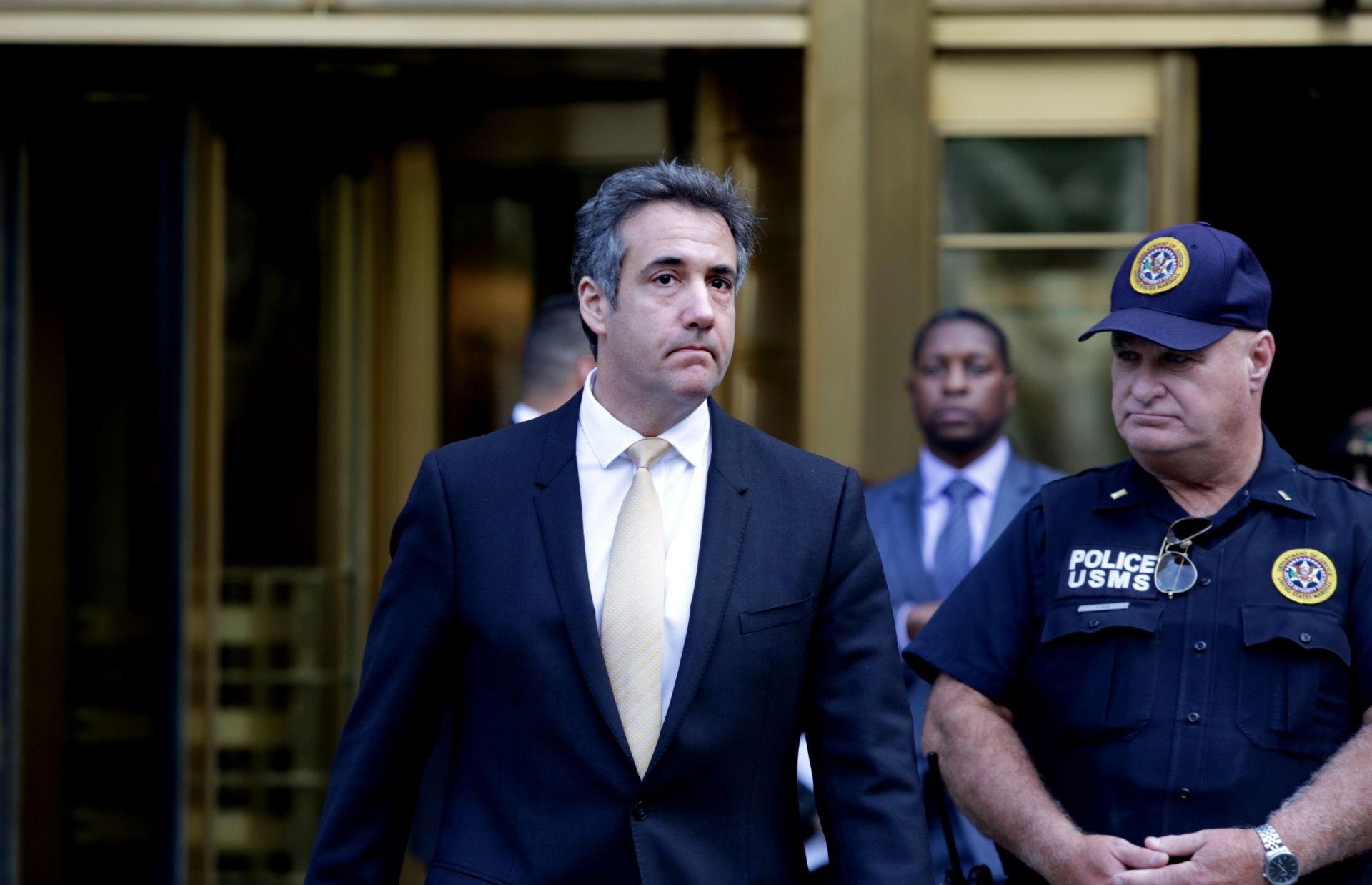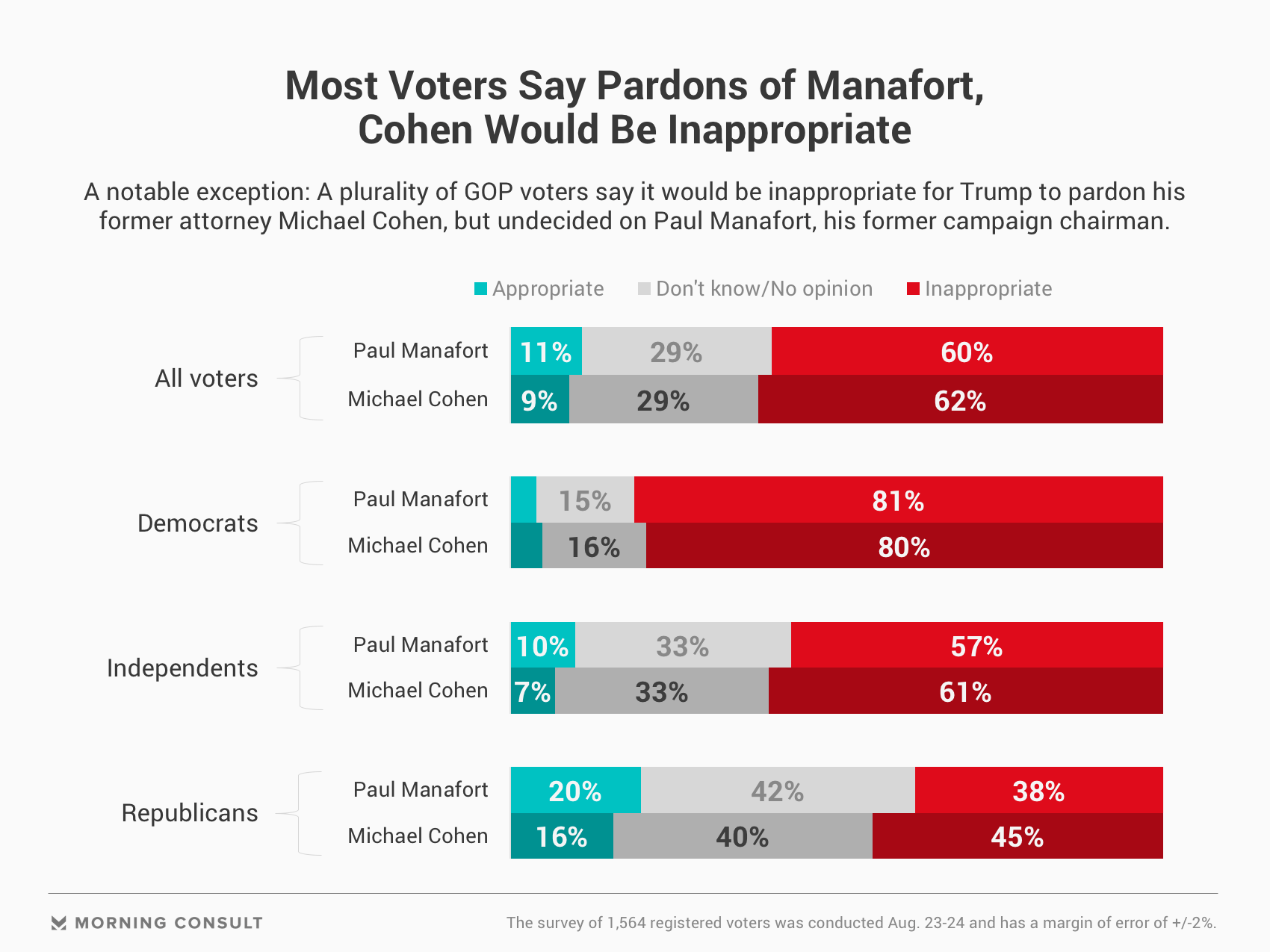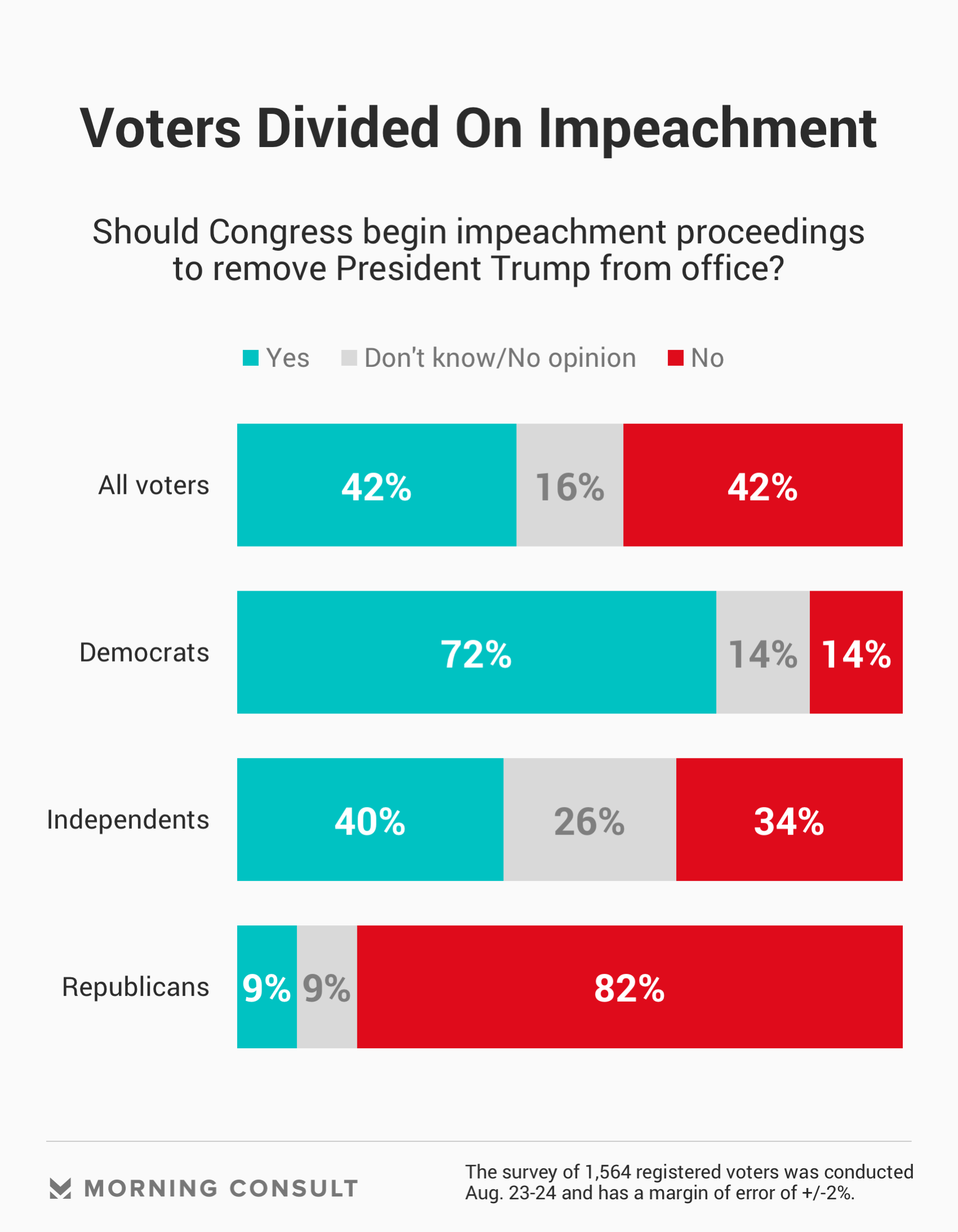Voters Say It’d Be Inappropriate for Trump to Pardon Manafort and Cohen

Key Takeaways
Plurality of GOP voters say it would not be appropriate to pardon Cohen, but undecided about Manafort.
A third of independent voters say they’d be more likely to back a candidate for Congress who supports impeachment, compared to 60% of Democrats.
President Donald Trump, who has reportedly considered pardoning some of his former associates in legal trouble, could get the chance after Paul Manafort, his former campaign chairman, was convicted on charges of bank fraud and his former attorney, Michael Cohen, pleaded guilty to campaign finance charges.
But a new Morning Consult/Politico poll of 1,564 registered voters, conducted Aug. 23-24, found most voters don’t want either of them pardoned.

Six in 10 voters think it would be inappropriate for Trump to pardon Manafort, and 62 percent believe the same for Cohen. Democrats and independent voters agreed that such a move would be inappropriate for either Trump associate, but views among Republican voters shifted slightly depending on which of the two men they were asked about.
When asked regarding Manafort, for whom Trump has expressed sympathy, a 42 percent plurality of Republicans said they did not know or had no opinion on whether it would be appropriate for Trump to issue a pardon. But when it came to Cohen, a 45 percent plurality said pardoning him would be inappropriate. The poll has a margin of error of plus or minus 2 percentage points.
Trump lawyer and former New York City Mayor Rudy Giuliani told The Washington Post that the president recently sought his lawyers’ advice on the possibility of pardoning Manafort and other aides accused of crimes. But Giuliani said Trump was advised against pardoning anyone in the Russia probe until special counsel Robert Mueller’s investigation has finished, citing concerns that it could be viewed as obstruction of justice.
On Twitter Wednesday morning, the president made his views about Manafort’s and Cohen’s respective loyalties clear, saying, “I feel very badly for Paul Manafort,” who, unlike Cohen, “refused to ‘break’ - make up stories in order to get a ‘deal.’”
Cohen’s admission of guilt – which states that Trump directed him during the 2016 presidential campaign to arrange payments to women to keep them from speaking publicly about alleged affairs – implicates Trump directly, bringing the hypothetical and unsettled legal question of whether a sitting president can be indicted to the forefront. Sixty-six percent of voters said it should be legally permissible for a sitting president to be formally charged with a crime – including nearly half (48 percent) of Republicans.
Even if they can’t indict a president, prosecutors can report their findings to Congress, to whom the Constitution has given the power to impeach and remove the president from office. The Cohen news added fuel to the fire on the activist left about beginning presidential impeachment proceedings, a move that was blocked with the help of nearly two in three House Democrats when Rep. Al Green (D-Texas) attempted to force a vote on it in January.

Voters are split, at 42 percent, over whether Congress should begin impeachment proceedings. Seventy-two percent of Democrats said Congress should begin the proceedings, while 82 percent of Republicans said it should not.
While Democratic leaders in Washington have tried to tamp down talk of impeachment, it has emerged sporadically on the campaign trail – sometimes by Republicans as a way to motivate their own base, which still supports the president. Most voters (63 percent) think Congress will begin impeachment proceedings against Trump if Democrats take the House next year – including 72 percent of Democrats and 56 percent of Republican voters.
A third of independent voters (33 percent) say they’d be more likely to back a candidate for Congress who supports impeachment, compared to 60 percent of Democrats. Among Republicans, 68 percent said support for impeachment would make them less likely to support a candidate for Congress.
Democratic leaders have turned to a different message ahead of the midterms: When Cohen pleaded guilty and Manafort was convicted, House Democratic Leader Nancy Pelosi (D-Calif.) issued a statement attacking the “unprecedented culture of corruption, cronyism and incompetence” in Washington, using the criminality of the two Trump associates to make a broader point about the current political era.
Half of voters think there is more corruption in Washington since Trump took office, the survey found, compared to 26 percent who said there is less. Most Republicans took the side of the president, who campaigned promising to “drain the swamp,” with 56 percent declaring less corruption in the nation’s capital since Trump took office. But among independents, 49 percent said there is more corruption and 18 percent said there is less.
Eli Yokley is Morning Consult’s U.S. politics analyst. Eli joined Morning Consult in 2016 from Roll Call, where he reported on House and Senate campaigns after five years of covering state-level politics in the Show Me State while studying at the University of Missouri in Columbia, including contributions to The New York Times, Politico and The Daily Beast. Follow him on Twitter @eyokley. Interested in connecting with Eli to discuss his analysis or for a media engagement or speaking opportunity? Email [email protected].
Related content

As Yoon Visits White House, Public Opinion Headwinds Are Swirling at Home

The Salience of Abortion Rights, Which Helped Democrats Mightily in 2022, Has Started to Fade
